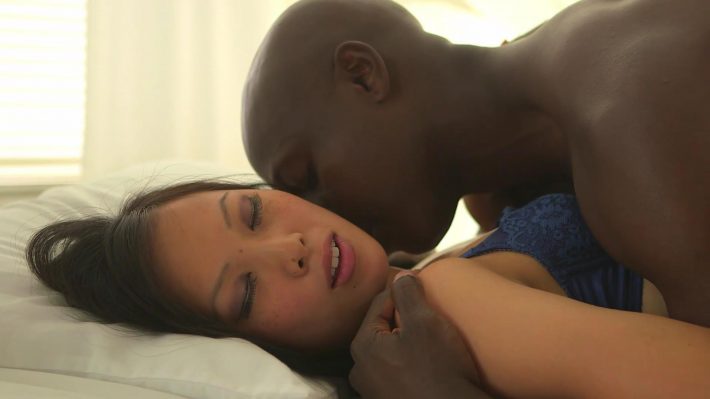 The answer would seem to be obvious – men. They think about sex way more, have double the sexual urges, fantasize more, masturbate more – and it is all triggered by a much higher dose of the sex-drive hormone, testosterone. For men, the goal of sex is, well, sex itself. For nearly three times more for women, though, it is love and intimacy that are important goals, too.
The answer would seem to be obvious – men. They think about sex way more, have double the sexual urges, fantasize more, masturbate more – and it is all triggered by a much higher dose of the sex-drive hormone, testosterone. For men, the goal of sex is, well, sex itself. For nearly three times more for women, though, it is love and intimacy that are important goals, too.
But not so fast. It turns out that desire and drive may be just as high with women – if different. Studies have found that female sexuality is not the romantic, doting and monogamous force it’s made out to be. For instance, women have been shown to be turned on by a much greater range of stimuli than men; they are more omnivorous in what they respond to. In tests, they displayed, overall, “strong and swift genital arousal” (using vaginal lubrication sensors) when watching footage of men with men, women with women, and even Bonobo monkeys – famous for their wild displays of rampant libido.
By many criteria, women are more sexually adaptable than men. Lesbians, for example, are far more comfortable with sleeping with men than gay men are with women. Men may think more about sex but they also feel guiltier about it. They may masturbate more than women, but it is the women who feel way more unrepentant about self-pleasuring.
On the other hand, in long-term relationships, surveys show that women tend to want less sex than men. Remember the Woody Allen film where he says, “We rarely have sex – 2.5 times a week”. Asked the same thing, she says, “We have sex all the time – 2.5 times a week”. Where women tend to say they want the same or less than the amount of sex they are having in a relationship, men, in general, would ideally go for 50% more. This gap between men and women in their desire to have sex in relation to actually having it is significant. A massive 82% of women say they have had sex when they didn’t really want it, where the figure drops to 60% for men.
In a famous college experiment, attractive researchers went around the campus asking opposite gender students, “Would you have sex with me tonight?”, three-quarters of the men said “yes”, yet not one of the women agreed. This may demonstrate that men are more inclined to give in to spontaneous sexual desire, whereas women tend to have a broader stance on the issue than just the offer of sex.
This also is reflected in why the erection-on-demand male pills have been so hugely successful – give a man a hard-on and he will be driven to satisfy it. The female pill has proved much more elusive to perfect. Similar hormones can create just as much arousal in the female genitalia – but an effective one for women will need to have added components that trigger mental and emotional desire as well.
 This shows that we can’t just use male sex drive as a benchmark for measuring levels of desire but should have a much broader understanding of sexual desire in general and across the genders. Clearly, men tend to be more basic in their sexual goals. For them, the main driver is sexual pleasure ending in the release of orgasm (which happens 95% of the time for men in heterosexual encounters). Women, by contrast, are more motivated by feelings of intimacy and closeness in their sexual goals. A factor in this is surely that, basically, sex can lead to pregnancy in women, so there is more of a concern to feel close to a partner.
This shows that we can’t just use male sex drive as a benchmark for measuring levels of desire but should have a much broader understanding of sexual desire in general and across the genders. Clearly, men tend to be more basic in their sexual goals. For them, the main driver is sexual pleasure ending in the release of orgasm (which happens 95% of the time for men in heterosexual encounters). Women, by contrast, are more motivated by feelings of intimacy and closeness in their sexual goals. A factor in this is surely that, basically, sex can lead to pregnancy in women, so there is more of a concern to feel close to a partner.
It appears, too, that women way more than men are affected in their desire for sex by how they feel about themselves and their bodies. When women believe in their own desirability, they are likely to have way higher libidos.
Contrasting sex drives in men and women leads to broad generalizations, though men and women vary massively in their degree of sexual desire. Indeed, not only does can there be huge differences across the genders, the same person can find their sex drive varying at different stages of life, or day by day, and even by the hour. The menstrual cycle has its own influence, with women usually being at their highest level of libidinousness at the time of ovulation.
Though men and women have differing response cycles and can desire different things, it is too simplistic to make the case that sex drive is stronger more in one gender than the other. One researcher went so far as to argue that “women’s sexuality is not the rational, civilized and balancing force it’s so often made out to be – but is base, animalistic and ravenous – everything we’ve told ourselves about male sexuality”.
Go girl!!

